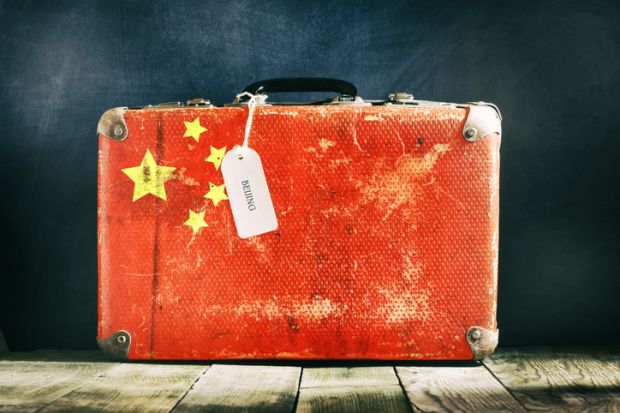Less than a month after calling an end to the federal crackdown on scientists with Chinese ties, the Biden administration is putting another university professor on trial with dubious allegations and no suggestion of espionage.
The defendant, Franklin Feng Tao, is a Chinese-born associate professor of chemistry at the University of Kansas. He has been accused of illegally hiding paid work at Fuzhou University, in the south-eastern Chinese province of Fujian, while also receiving US government research contracts at Kansas.
Dr Tao, however, contends that he only had entertained the idea of a job at Fuzhou, and never took or was paid for one. The prosecution, his defenders have argued, is part of a series of instances initiated in the Trump administration to criminalise even minor associations between US academic scientists and Chinese partners.
“Dr Tao’s case has no national security implications,” his defence lawyer, Peter Zeidenberg, told Times Higher Education. “It is a pure academic integrity case involving an allegation of a non-disclosure of completely lawful conduct.”
His trial was set to begin this week in federal court in Kansas City despite a public pledge last month by the Biden administration that it considered the overall Trump-initiated “China Initiative” to be a harmful mistake that should be ended.
The decision was announced by Matthew Olsen, the head of the National Security Division of the US Department of Justice, who acknowledged the importance to US science of encouraging native Chinese participants and partners. “This initiative is not the right approach,” Mr Olsen said, outlining the results of a months-long departmental review of the China Initiative.
The initiative is believed to have involved investigations of hundreds of US academics with Chinese ties, leading many of them, and untold numbers of others, to quit or be forced from their jobs. The cases overwhelmingly allege paperwork-related disclosure violations rather than make claims of espionage. Some two dozen of the cases have led to criminal charges, with little prosecutorial success.
Mr Olsen spoke a month after the Department of Justice dropped charges against one of the more prominent defendants, Gang Chen, a Chinese-born Massachusetts Institute of Technology professor of mechanical engineering, admitting that it lacked evidence. The government had made the same decision in several other cases.
The chief conviction from the four-year-old initiative, that of Charles Lieber, came after the former chair of Harvard University’s chemistry department admitted that he did actively hide some payments he had received in China. Professor Lieber’s relationship with his Chinese partner institution – the Wuhan University of Technology – had been publicly reported years earlier, but his defenders said he hid money in fear of political repercussions from having the association more widely known.
The continued prosecution of Dr Tao, Mr Zeidenberg said, contradicts the Biden administration promise set out by Mr Olsen and the Department of Justice to abandon the Trump approach.
“It says that the DoJ is doing nothing to ameliorate the harms it has acknowledged were caused by the China Initiative,” he told THE. “We were told that such cases would not be brought in the future; what could be the possible rationale for continuing such a case simply because it was already in the pipeline?”
Dr Tao, a University of Kansas employee since 2014, was arrested in 2019 just after an FBI raid of his home that happened while he was travelling back from a visit to see his ailing mother in China. The 50-year-old academic was charged with seven counts of wire fraud and three counts of making false statements, carrying the potential for decades in prison if convicted. He was put on unpaid leave from the university and forced to wear an ankle monitor for more than two years.
He was accused in the case of having defrauded the US government by accepting federal research funding without admitting that he also was getting paid by Fuzhou University. He has acknowledged taking steps towards formalising a job at Fuzhou, but says he never completed the hiring process in large part because his family did not want to make the move.
Dr Tao’s attorneys also have noted that his field of study – chemical reactions on various surfaces – is a basic science lacking national security concern.
The defence effort got a boost just ahead of the trial when the federal judge handling the case, Julie Robinson, ruled that prosecutors cannot spend time telling jurors about China’s espionage practices, calling that irrelevant to the limited charges brought in the case.
The defence team also has said it saw value – due to similarities in the Tao and Chen cases – in a recent admission from the US Energy Department that it would not have withheld Dr Chen’s grant funding if it had known details of his connections to China that he was alleged to have hidden.
Register to continue
Why register?
- Registration is free and only takes a moment
- Once registered, you can read 3 articles a month
- Sign up for our newsletter
Subscribe
Or subscribe for unlimited access to:
- Unlimited access to news, views, insights & reviews
- Digital editions
- Digital access to THE’s university and college rankings analysis
Already registered or a current subscriber? Login








